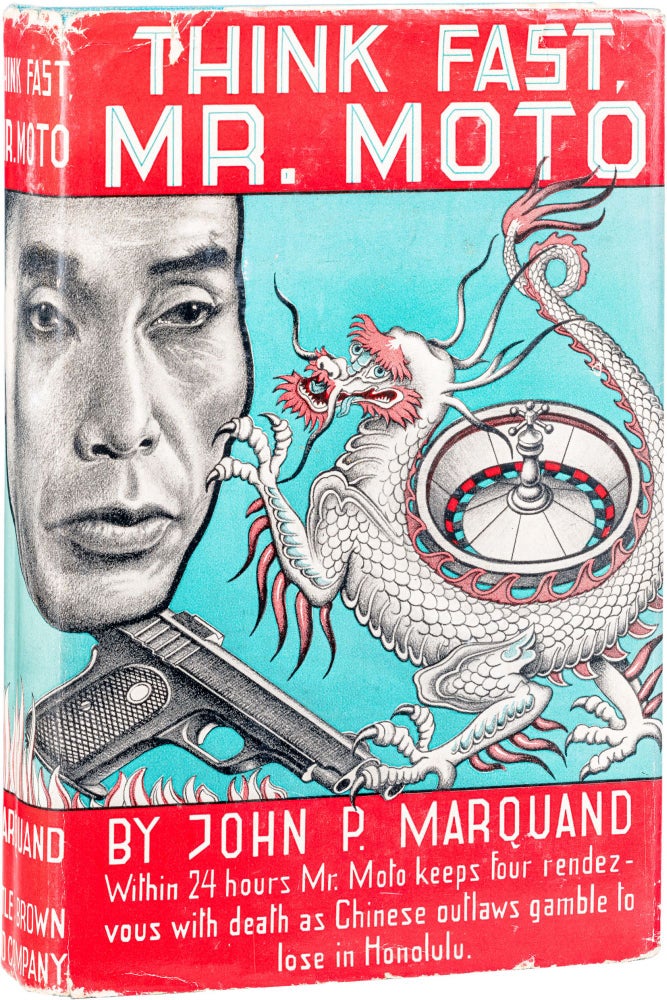
Think Fast, Mr. Moto
Boston: Little, Brown & Co., 1937. First Edition. Hardcover. 1st edition of the 3rd Mr. Moto. Original cloth, near fine in a very good dustjacket with small chips to the spine’s top and a very soft crease, and among bookselling’s most pathetic lies is to call chipping, rubbing, unless the potential customer is both blind and lacking even a cursory sense of touch. Not a common 1st edition in any manner of jacket. RBH lists only 2 copies sold at auction since 1975, one of them with a hefty chip to the jacket’s spine, and the other one better, and more recent, but still in a soiled and worn jacket. Near fine / very good. Item #732
“Young Wilson Hitchings is ready to take his place in the venerable family firm of Hitchings Brothers, Bankers and Commission Merchants: Honolulu, Shanghai, Canton. His first real assignment is to travel to Hawaii and deal with the Hitchings Plantation, a gambling house started by a black sheep of the family and maintained after his death by his lovely daughter, Eva Hitchings. Wilson’s orders are to shut the place down before it does further damage to the staid family firm’s image. Little does he realize that the plantation is the center of international financial intrigue involving Mr. Moto.” –James S. Koga The Mr. Moto novels were a creation of The Saturday Evening Post. When Earl Biggers died in 1933, The Post went looking to replace his Charlie Chan serializations that had propelled their sales and subscriptions. They approached the already established John Marquand, who was busy writing novels about the dilemmas of class, and after offering him an unseemly bundle of depression era cash, they came to an agreement that included a trip to Asia so he could scout the terrain, ambiance, and local customs. The first novel he gave them was Ming Yellow, set in China’s interior and focused on a treasure hunter’s pursuit of a pricey and venerated piece of antique porcelain. The Post was pleased but they fancied a title character who was a traditional detective or a secret agent. They also preferred one who was Japanese, so Marquand delivered Mr. Moto. The first novel (No Hero) had a standard size book printing after its magazine run, but the second book (Thank You, Mr. Moto) was printed in tiny numbers just to fill standing orders and then the book rights were turned over to G & D for a cheap edition, so it is rare in a dustjacket. The third novel (our book) had a larger printing and while it is not rare, it is scarce in jacket unless you like ex–library copies. Then Marquand won a Pulitzer Prize for The Late George Apley and Little, Brown increased the print runs for the Mr. Moto books that followed.
The 1937 film starred Peter Lorre who also played Mr. Moto in 7 subsequent films.
Price: $3,000.00
